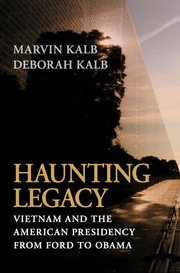Q&A with author Laura Jean McKay
 Monday, November 18, 2013 at 7:45AM
Monday, November 18, 2013 at 7:45AM  Laura Jean McKay, a writer and performer, is the author of the new short story collection Holiday in Cambodia. Her writing has appeared in a variety of publications, including The Best Australian Stories and The Big Issue. She is based in Melbourne, Australia.
Laura Jean McKay, a writer and performer, is the author of the new short story collection Holiday in Cambodia. Her writing has appeared in a variety of publications, including The Best Australian Stories and The Big Issue. She is based in Melbourne, Australia.
Q: Why did you end up setting your stories in Cambodia?
A: I was working as an aid worker and doing a lot of writing on the side and I was sent to Phnom Penh by my organisation. I had never been anywhere like Cambodia, and haven't since. I loved and feared it – which is a pretty good place to write from. I got offered a contract to work in Ratanakiri, in the remote north, which was even more astonishing than Phnom Penh.
I didn't really mean to write about Cambodia but because I'm a writer I just started to. Originally I was going to work on a novel but I was around all these amazing Khmer writers, who worked on short fiction, poems and essays and I was influenced by them.
Q: Why did you choose "Holiday in Cambodia" as your title?
A: “Holiday in Cambodia” is the name of a song by The Dead Kennedys, written in 1980. I've always loved the song and the lyric “A holiday in Cambodia / Where the slums got so much soul” seemed to sum up my collection – about people, often tourists, searching for something in a country that has been decimated by war. I wanted the collection to question how you can possibly have a holiday in Cambodia …
Q: Your stories are set in various time periods over the past 60 years. Why is that, and did you have a time period that especially interested you?
A: The novel that I started out writing (which became the story “Breakfast”) was set in ‘60s Cambodia, in the middle of the country's modern cultural revolution. There was an amazing music, art and literary scene, but also a lot of political turmoil internally and through the war in Vietnam.
I am fascinated by that era, but also by the end of French colonialism, the Khmer Rouge period, and the ‘80s and ‘90s. Cambodia has arguably one of the most tumultuous revolutionary histories of recent times – a history that goes beyond Angkor and the Khmer Rouge – and I wanted to reflect some of that, so that the stories set in modern day Cambodia would have a background and a meaning beyond the usual tourist tale.
Q: Are there particular themes you hope your readers get from your stories?
A: Like most stories, the themes here are sex and death. That sounds a little strange to say it like that but most stories are about one, the other, or both. Love, birth, death and all that comes in between.
Arriving in Cambodia for the first time in 2007, I felt that sex and death were very present – from the astonishing amount of brothels, to the inappropriate expat parties, to the horrific road toll, to the short life expectancy … I felt that this was a country dealing with the very raw elements of survival and recovery and I was shocked and fascinated by that, especially coming from Australia where everything happens inside!
Q: What are you working on now?
A: I have started writing a novel and, because I love the short story form, I am writing stories on the side.
Q: Anything else we should know?
A: There are some great stories by Cambodian writers. You can find them in Nou Hach Literary Journal, in Just a human being and other stories and in Under the Shadow of Angkor. You can also read more of my writing or find out more about my book at laurajeanmckay.com.
--Interview with Deborah Kalb. This Q&A also appears on deborahkalbbooks.blogspot.com.


Reader Comments